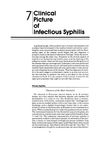 July 2003 in “Journal of Cutaneous Medicine and Surgery”
July 2003 in “Journal of Cutaneous Medicine and Surgery” The document concludes that various treatments for skin conditions are effective, but some require further research, and certain factors like gender and lifestyle can influence disease outcomes.
 July 2003 in “Journal of Cutaneous Medicine and Surgery”
July 2003 in “Journal of Cutaneous Medicine and Surgery” Stopping certain drugs can improve skin conditions, arsenicosis affects over half of a Bangladeshi village, males are more vulnerable, and certain treatments are effective for warts, acne, and psoriasis. Smoking and drinking are linked to psoriasis in men, a cream helps with a type of skin cancer, and low iron levels don't directly cause chronic hair loss in women.
 December 2023 in “bioRxiv (Cold Spring Harbor Laboratory)”
December 2023 in “bioRxiv (Cold Spring Harbor Laboratory)” The research suggests Dutasteride and Solifenacin may be effective against the bacterium causing listeriosis.
[object Object]  11 citations,
September 2021 in “Anais Brasileiros de Dermatologia”
11 citations,
September 2021 in “Anais Brasileiros de Dermatologia” The conclusion is that early diagnosis of skin signs linked to diseases like Lupus, Dermatomyositis, and Rheumatoid Arthritis is crucial to prevent serious complications.
 10 citations,
June 2021 in “BioMed Research International”
10 citations,
June 2021 in “BioMed Research International” Some recovered COVID-19 patients experience skin, hair, and nail issues, suggesting they need follow-up care.
 2 citations,
October 2022 in “Current Allergy and Asthma Reports”
2 citations,
October 2022 in “Current Allergy and Asthma Reports” Biologic therapies can cause various adverse events, but allergy/immunology clinicians can manage them.
 2 citations,
September 2021
2 citations,
September 2021 The COVID-19 pandemic increased the use of teledermatology to treat skin conditions in low-income areas, despite challenges like poor photo quality.
 August 2023 in “Dermatology and Therapy”
August 2023 in “Dermatology and Therapy” Imiquimod can cause rare skin side effects, some irreversible, and long-term follow-up is important for users.
May 2022 in “Journal of the Dermatology Nurses' Association” The convention highlighted the importance of comprehensive patient care and early diagnosis in dermatology.
23 citations,
October 2020 in “Anais brasileiros de dermatologia/Anais Brasileiros de Dermatologia” Tailored treatments for alopecia areata are recommended based on severity and patient needs.
 11 citations,
January 2022 in “Journal der Deutschen Dermatologischen Gesellschaft”
11 citations,
January 2022 in “Journal der Deutschen Dermatologischen Gesellschaft” Alopecia areata is a chronic condition causing hair loss, with new treatments targeting the immune system showing promise.
 2 citations,
May 2021 in “European medical journal”
2 citations,
May 2021 in “European medical journal” Botulinum toxins are safe for various medical and cosmetic uses, but more research is needed for long-term safety and effectiveness in hair growth treatments.
 October 2024 in “International Journal of Molecular Sciences”
October 2024 in “International Journal of Molecular Sciences” Rosa rugosa extract promotes hair growth and could be a natural treatment for hair loss.
 September 2024 in “Journal of Cutaneous and Aesthetic Surgery”
September 2024 in “Journal of Cutaneous and Aesthetic Surgery” Bicalutamide may help treat female pattern hair loss.
 August 2023 in “Dermatology and Therapy”
August 2023 in “Dermatology and Therapy” Experts recommend personalized treatment plans for best outcomes in managing Alopecia Areata.
[object Object] March 2022 in “Oncology Times” Tebentafusp-tebn improves survival rates in uveal melanoma patients but has common side effects like rash and fatigue.
 1 citations,
November 2022 in “World Family Medicine Journal /Middle East Journal of Family Medicine”
1 citations,
November 2022 in “World Family Medicine Journal /Middle East Journal of Family Medicine” People in Jeddah know about Vitamin D and its sources but are unclear on how much they need daily, and while many women take supplements, attitudes towards increasing Vitamin D levels vary.

Lupus is a complex disease that requires personalized treatment because it varies greatly between individuals.
 April 2022 in “Research Square (Research Square)”
April 2022 in “Research Square (Research Square)” Long COVID recovery is hindered by smoking, with hair loss being a difficult symptom to treat.
39 citations,
November 1990 in “The Journal of Steroid Biochemistry and Molecular Biology” Antiandrogens help treat hormone-related conditions in both men and women.
 3 citations,
September 2022 in “Frontiers in psychiatry”
3 citations,
September 2022 in “Frontiers in psychiatry” University students in Egypt experienced high stress during COVID-19's third wave, with negative coping mechanisms being more common.
2 citations,
September 2022 in “Frontiers in Nutrition” High-dose vitamin D3 does not improve symptoms or quality of life in COVID-19 patients after one year.
 12 citations,
January 1984 in “Clinics in Dermatology”
12 citations,
January 1984 in “Clinics in Dermatology” The document concludes that syphilis has varied symptoms that are often missed, making clinical awareness crucial for diagnosis.
 November 2003 in “Aap Grand Rounds”
November 2003 in “Aap Grand Rounds” Low-dose flutamide-metformin therapy effectively improved PCOS symptoms in adolescent girls.
 130 citations,
September 1990 in “Journal of the American Academy of Dermatology”
130 citations,
September 1990 in “Journal of the American Academy of Dermatology” Flutamide effectively reduced excessive hair growth and improved related symptoms in hirsutism patients without significant side effects.

COVID-19 vaccines had more side effects and worse perception than flu vaccines in Korean lupus patients.
 3 citations,
June 2004 in “Reviews in gynaecological practice”
3 citations,
June 2004 in “Reviews in gynaecological practice” Early treatment and weight management are important for teenagers with PCOS to reduce symptoms and long-term health risks.
 165 citations,
February 1994 in “Fertility and Sterility”
165 citations,
February 1994 in “Fertility and Sterility” Flutamide is more effective and has fewer side effects than spironolactone for treating hirsutism.
 10 citations,
September 2022 in “Psychiatry and Clinical Neurosciences”
10 citations,
September 2022 in “Psychiatry and Clinical Neurosciences” Long COVID affects over half of COVID-19 survivors, causing a range of symptoms like fatigue and neurological issues, with no specific treatment yet.
 109 citations,
April 2000 in “European Urology”
109 citations,
April 2000 in “European Urology” Finasteride lowers risk of urinary issues and surgery by over 50% in 4 years.

























